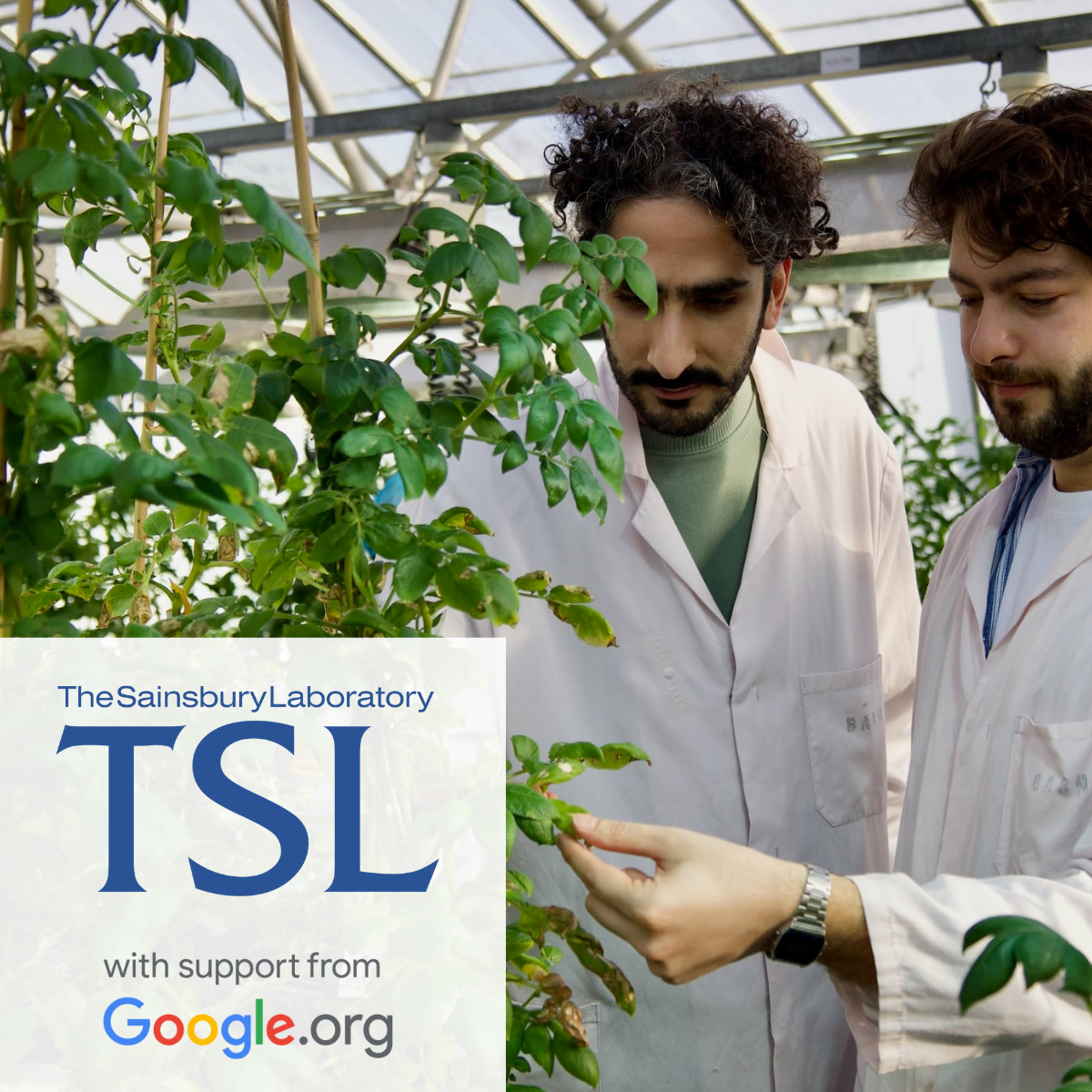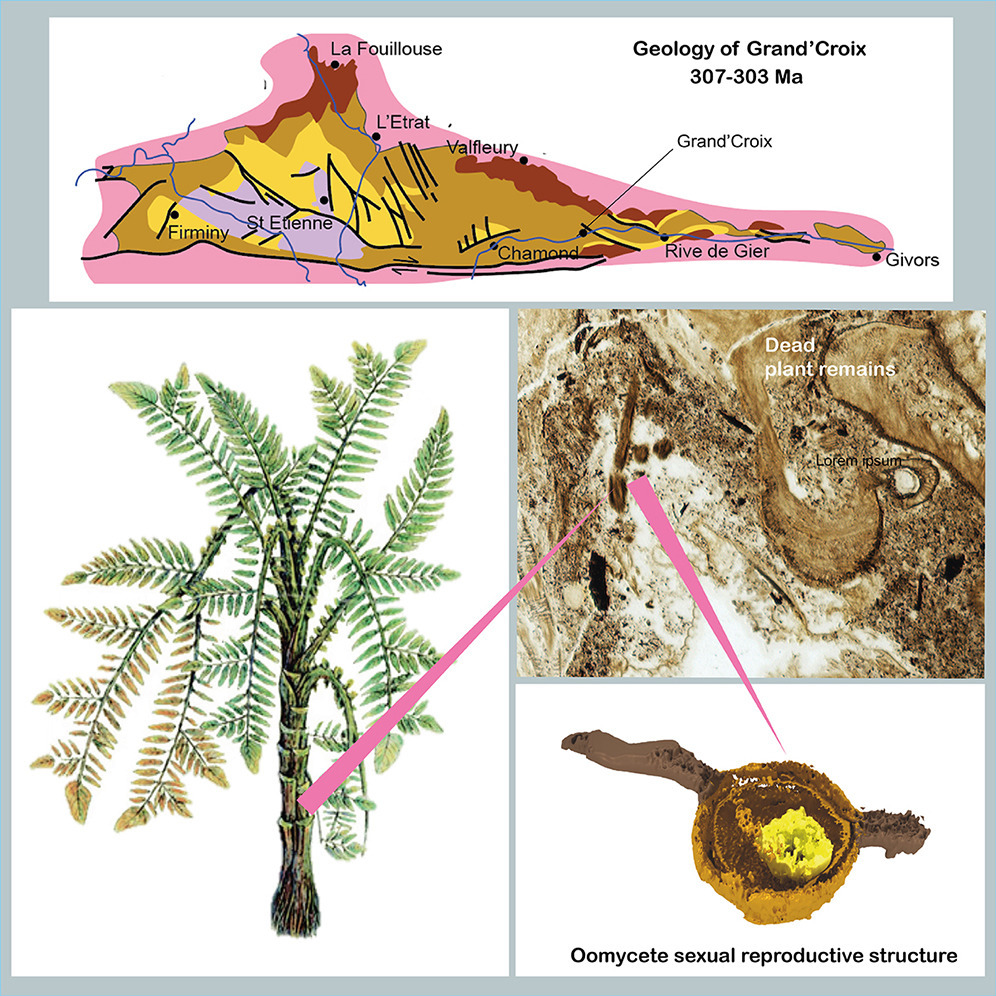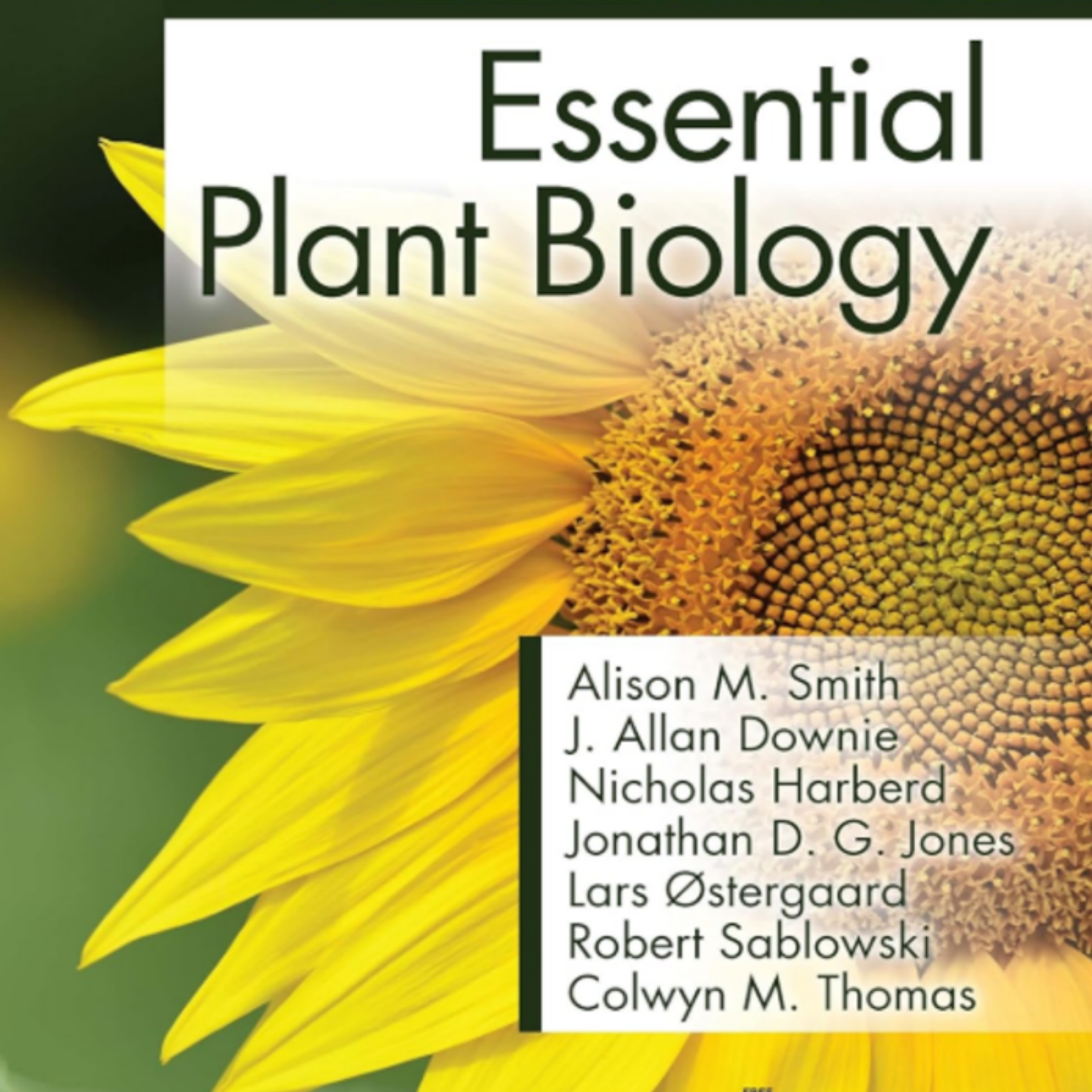Essential investment in plant and microbial research in Norwich confirmed
Development of an exciting, ground-breaking plant and microbial science and innovation hub can go ahead with confirmation of funding announced today.

Credit: BDP, Secchi Smith
The transformational investment will fund new cutting-edge, world-class facilities for the John Innes Centre (JIC) and The Sainsbury Laboratory (TSL) at the heart of the Norwich Research Park. This will deliver a step change in our capability to translate scientific knowledge into bio-based solutions in response to some of society’s most pressing challenges.
As well as transforming the existing capabilities of the John Innes Centre and The Sainsbury Laboratory, both internationally recognised centres of excellence in plant and microbial science, the new hub also aims to become a net-zero carbon laboratory.
The JIC and TSL Next Generation Infrastructure programme is funded by the UKRI Infrastructure Fund, which invests in the facilities, equipment and resources that are essential for researchers and innovators to do ground-breaking work.
The programme will develop the site over the next seven years, with £54.7 million being invested over the first three years, and a total investment of £317.7 million from the Fund.

Credit: BDP, Secchi Smith
Professor Melanie Welham, Executive Chair of the Biotechnology and Biological Sciences Research Council (BBSRC), part of UK Research and Innovation (UKRI), said: “Providing access to cutting-edge, sustainable research and innovation infrastructures is mission-critical to the competitiveness and long-term success of UK bioscience.
“UKRI's investment in the John Innes Centre and The Sainsbury Laboratory Next Generation Infrastructure provides an important opportunity to further improve our local connections with key partners at Norwich Research Park, the likes of which include Earlham Institute and Quadram Institute.
“Beyond that, the investment also represents a real opportunity to establish a world-leading global interdisciplinary hub for plant and microbial sciences that will help deliver the bio-based solutions needed to address global challenges around sustainable agriculture, food, nutrition and health.”

Credit: BDP, Secchi Smith
With construction of the new hub expected to be completed in 2030, an ongoing fundraising campaign is underway to secure a further £30 million investment to support the full cost of the Next Generation Infrastructure programme.
Professor Graham Moore, Director of the John Innes Centre, said: “Securing this funding is a major step forward in realising our vision to improve collaborative working across the UK and overseas, helping us to provide a safer, healthier and more sustainable future through the power of plant and microbial science. As well as new laboratories, the investment includes a redevelopment of our plant growth facilities, which in conjunction with our existing field station, will improve our ability to study the effects of climate change.”
Professor Nick Talbot FRS, Executive Director of The Sainsbury Laboratory, said: “This transformational investment exemplifies the UK’s confidence in the future of our research institutes and their ability to transform global agriculture through innovation. It is imperative that agricultural production is transformed to become a net carbon zero activity that no longer relies on fossil fuels. The investment from UKRI will enable us to harness the collaborative environment on the Norwich Research Park, catalysing new research initiatives and creating a unique asset for UK science and innovation.”
Enabling an ambitious vision

The investments from the UKRI Infrastructure Fund and other key partners will enable the realisation of an ambitious longer-term vision. Healthy Plants, Healthy People, Healthy Planet (HP3) seeks to provide a safer, healthier and more sustainable future through the power of plant and microbial science.
This bold vision represents a revolution in plant and microbial sciences that strives to integrate advances in genetics, genomics, structural biology, live cell imaging and computational biology to reach new levels of understanding.
HP3 and the development of a global interdisciplinary hub for plant and microbial research has garnered generous contributions from the Gatsby Charitable Foundation, the University of East Anglia, the John Innes Foundation, the Wolfson Foundation and the Garfield Weston Foundation.
The new hub will play a pivotal role in reducing the impact of climate change, providing long term sustainable food solutions, improving human health and enhancing growth and economic prosperity across the UK and beyond.
_____________
Notes to Editors
Contacts
Felicity Perry, Head of Communications, John Innes Centre
T: 01603 450269
About the John Innes Centre
The John Innes Centre is an independent, international research centre specialising in plant science, genetics and microbiology. Our mission is to generate knowledge of plants and microbes through innovative research, to train scientists for the future, to apply our knowledge of nature’s diversity to benefit agriculture, the environment, human health, and wellbeing, and engage with policy makers and the public.
The John Innes Centre is strategically funded by the Biotechnology and Biological Sciences Research Council (BBSRC), part of UKRI, the European Research Council and other charitable sources including the John Innes Foundation, which supports the provision of research accommodation, capital funding and long-term support of the Rotation PhD programme.
For more information about the John Innes Centre visit our website www.jic.ac.uk
About The Sainsbury Laboratory
The Sainsbury Laboratory (tsl.ac.uk) is an independent research institute that focuses on plant health for a sustainable future. It makes fundamental scientific discoveries in molecular plant-microbe interactions and applies these to reduce crop losses caused by plant diseases, particularly in low-income countries.
Around one hundred and twenty staff and students work and study at the Laboratory, which is located on the Norwich Research Park, United Kingdom. The Laboratory is generously supported by the Gatsby Charitable Foundation and by the University of East Anglia, wins competitive grants from the BBSRC, ERC and other research grant funding bodies and, for some research programmes, is funded by commercial companies.
Established in 1987, highlights of The Sainsbury Laboratory include: discovery of RNA interference in plants by Prof. Sir David Baulcombe FRS as recognised by the Lasker Award and the Wolf Prize in Agriculture, discovery of the first immune receptor in plants by Prof. Jonathan Jones FRS, three current Group Leaders are Fellows of the Royal Society, and five researchers who have been on the Highly Cited Researchers list of top 1% scientists in the world since 2018.
Our Supporters
The Next Generation Infrastructure programme has been developed with the Biotechnology and Biological Sciences Research Council (BBSRC), part of UKRI, and is supported by the UKRI Infrastructure Fund.
The programme and HP3 vision is also supported by the Gatsby Foundation, the John Innes Foundation, the University of East Anglia, the Wolfson Foundation and the Garfield Weston Foundation.
About the UKRI Infrastructure Fund programme
The UKRI Infrastructure Fund supports the facilities, equipment and resources that are essential for researchers and innovators to do ground-breaking work.
This strategic fund helps to create a long-term pipeline of research and innovation infrastructure investment priorities for the next 10 to 20 years. It supports a range of projects from new infrastructures to major upgrades, delivering a step change in infrastructure capability and capacity.
The Infrastructure Fund spans the complete disciplinary spectrum and funds infrastructures located across all of the UK’s regions and nations, and those which form part of major international collaborations.
UKRI Infrastructure Fund projects
About Healthy Plants, Healthy People, Healthy Planet (HP3)
Healthy Plants, Healthy People, Healthy Planet (www.hp3.org) is a collaborative vision and call to action, initiated by The Sainsbury Laboratory and the John Innes Centre. HP3 aims to galvanise the research and innovation community to meet the era-defining challenges of feeding the world, combating global health threats and climate changes.
The Infrastructure Fund investment (a total of £317.7 million) supports the creation of a hub for plant and microbial science, designed to amplify the Norwich Research Park’s knowledge, expertise and skills. Plants and microbes will play an important role in a second “green revolution”, and this investment will ensure that the UK is at the fore, supercharging our ability to turn knowledge into solutions.
HP3 will bring knowledge, skills and people together to create ideas and innovations that allow us to sustainably feed a growing population, mitigate the effects of climate change and use our understanding of plants and microbes to develop foods and discover compounds to improve public health.
Aiming to be a net-zero carbon laboratory, providing a new home to the John Innes Centre and The Sainsbury Laboratory, and becoming a hub where interdisciplinary partners and collaborators can work side-by-side with researchers.
About the Next Generation Infrastructure / HP3 Programme Team
The JIC/TSL Next Generation Infrastructure team is supported by consultants across a range of disciplines, including architects, cost managers and project managers.
Since 2018, AECOM have played a key role in the programme as cost consultants and will continue to support the programme through the development of new infrastructure, lab buildings and technology platforms which aim to be amongst the first zero-carbon laboratory for embodied and operational carbon under UKGBC (UK Green Building Council) Network.
BDP has been involved since the germination of the project to develop a new infrastructure vision for the organisation, which supports the business case. It has helped to define and review options for the buildings that demonstrates collaborative working, scientific impact and innovation, public engagement, education, training, and efficiency.
BDP’s design and engineering team is bringing increased focus on reducing embodied and operational carbon emissions, creating environments needed for ground-breaking scientific endeavour while also meeting the technical requirements the research teams.
Turner & Townsend is the Delivery Partner for the programme, drawing on its sustainability, net zero consulting and technical programmatic delivery capability, they are providing programme, project management and digital consultancy services for this complex, multi-phased, re-development project. Turner & Townsend has supported the project since 2018 and is excited to continue its journey to create and deliver the next generation of net-zero laboratory facilities for the John Innes Centre and The Sainsbury Laboratory.
About AECOM
AECOM is the world’s trusted infrastructure consulting firm, delivering professional services throughout the project lifecycle – from advisory, planning, design and engineering to program and construction management. On projects spanning transportation, buildings, water, new energy and the environment, our public- and private-sector clients trust us to solve their most complex challenges. Our teams are driven by a common purpose to deliver a better world through our unrivalled technical and digital expertise, a culture of equity, diversity and inclusion, and a commitment to environmental, social and governance priorities.
AECOM is a Fortune 500 firm and its Professional Services business had revenue of $13.1 billion in fiscal year 2022. See how we are delivering sustainable legacies for generations to come at aecom.com and @AECOM.
About BDP
BDP is an international, multidisciplinary practice of architects, engineers, designers and urbanists who work closely with users, clients and communities to create special places for living, working, shopping, culture and learning across the world. Founded in 1961, BDP now has studios across North and South America, the UK, Ireland, Netherlands, UAE, India, China and Singapore. BDP has a leading track record in all major sectors including housing, workplace, retail, education, health, transport, sport, leisure, urbanism and heritage, and has won more than 1000 awards for design quality.
In March 2016, BDP combined forces with Japan’s leading engineering practice Nippon Koei to form an integrated design group of genuine international reach. Sharing a philosophy that places an emphasis on design integration and community impact, the new group offers a unique combination of deep technical skills in engineering, architecture and the full range of design disciplines.
BDP’s integrated, multidisciplinary design approach and sustainability consultancy services work together to create a net zero laboratory in all areas including acoustics, architecture, civil and structural engineering, interior design, building services engineering, landscape architecture, principal designer, and lighting.
About Turner and Townsend
Turner & Townsend is a global professional services company with over 10,000 people in 50 countries. Collaborating with its clients across real estate, infrastructure and natural resources sectors, the company specialises in major programmes, programme management, cost and commercial management, net zero and digital solutions. The delivery of the NGI project is being supported by its UK, Cambridge office.


